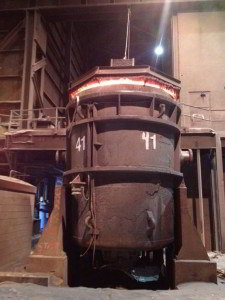 Refractory systems are complicated, heavy-duty machines and equipment that help make a wide range of products. In addition to containing the fire and protecting wall tubes, refractory chimneys are a vital part of the process, not only allowing out any smoke, steam and other excess heat, but also saving facilities on fuel costs when correctly designed, installed and maintained. Spalling is a sign of refractory masonry failure and may be symptomatic of other problems that are present in the refractory, as well.
Refractory systems are complicated, heavy-duty machines and equipment that help make a wide range of products. In addition to containing the fire and protecting wall tubes, refractory chimneys are a vital part of the process, not only allowing out any smoke, steam and other excess heat, but also saving facilities on fuel costs when correctly designed, installed and maintained. Spalling is a sign of refractory masonry failure and may be symptomatic of other problems that are present in the refractory, as well.
Refractory failure is the most common cause of boiler inefficiency, and is part of the problem in boiler shutdowns. There are a number of things that may contribute to refractory failure and, in many cases, it is a combination of these factors that led to the failure. A careful review of the environment, materials, operations and procedures is often required to identify the causes of failure.
Refractory masonry materials may fail prematurely due to thermal shock or excessive temperatures, mechanical damage or improper installation. The quality and type of fuel being burned can also affect refractory materials. Coal ash, with a high basic oxide content and low fusion point, is extremely corrosive, for example. Oil ash can also be highly corrosive, due to the hydrocarbons, alkalis, sulfur and vanadium that it contains. In both cases, the ash composition may be damaging to refractory materials and may result in spalling, the corrosion and degradation of materials due to stress, strain and heat.
The skilled and experienced team at R.G. Smith Company has helped numerous businesses with refractory projects, including repairs and total rebuilds as well as new refractory installations. We frequently work on combustible equipment items, including refineries, acid plants, reformers, furnaces, boilers and heaters, and our team will make sure that your system is operating efficiently and effectively, now and well into the future. Contact us today by calling our Canton office at 330-456-3415 or in Mansfield at 419-524-4778 to learn more.

Leave a Reply